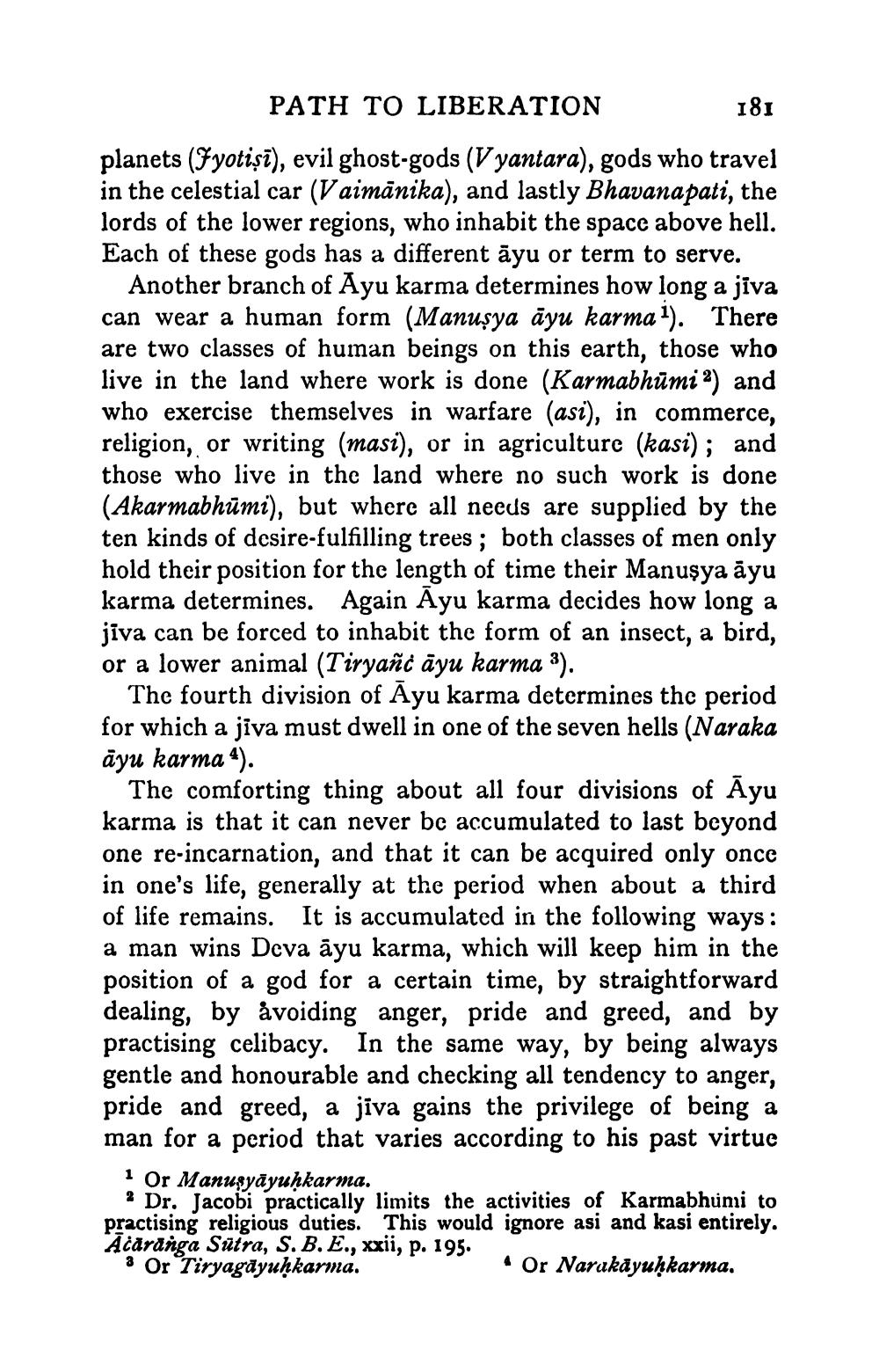________________
PATH TO LIBERATION
181
planets (Fyotişi), evil ghost-gods (Vyantara), gods who travel in the celestial car (Vaimānika), and lastly Bhavanapati, the lords of the lower regions, who inhabit the space above hell. Each of these gods has a different āyu or term to serve.
Another branch of Ayu karma determines how long a jiva can wear a human form (Manuşya āyu karma ?). There are two classes of human beings on this earth, those who live in the land where work is done (Karmabhūmi 2) and who exercise themselves in warfare (asi), in commerce, religion, or writing (masi), or in agriculture (kasi); and those who live in the land where no such work is done (Akarmabhūmi), but where all needs are supplied by the ten kinds of desire-fulfilling trees; both classes of men only hold their position for the length of time their Manuşya āyu karma determines. Again Ayu karma decides how long a jiva can be forced to inhabit the form of an insect, a bird, or a lower animal (Tiryañc āyu karma 3).
The fourth division of Āyu karma determines the period for which a jiva must dwell in one of the seven hells (Naraka äyu karma 4).
The comforting thing about all four divisions of Āyu karma is that it can never be accumulated to last beyond one re-incarnation, and that it can be acquired only once in one's life, generally at the period when about a third of life remains. It is accumulated in the following ways: a man wins Deva āyu karma, which will keep him in the position of a god for a certain time, by straightforward dealing, by åvoiding anger, pride and greed, and by practising celibacy. In the same way, by being always gentle and honourable and checking all tendency to anger, pride and greed, a jiva gains the privilege of being a man for a period that varies according to his past virtue
1 Or Manusyāyuhkarma.
2 Dr. Jacobi practically limits the activities of Karmabhuni to practising religious duties. This would ignore asi and kasi entirely. Acaranga Sutra, S.B.E., xxii, p. 195. 3 Or Tiryagdyuhkarma.
• Or Narakayuhkarma.




